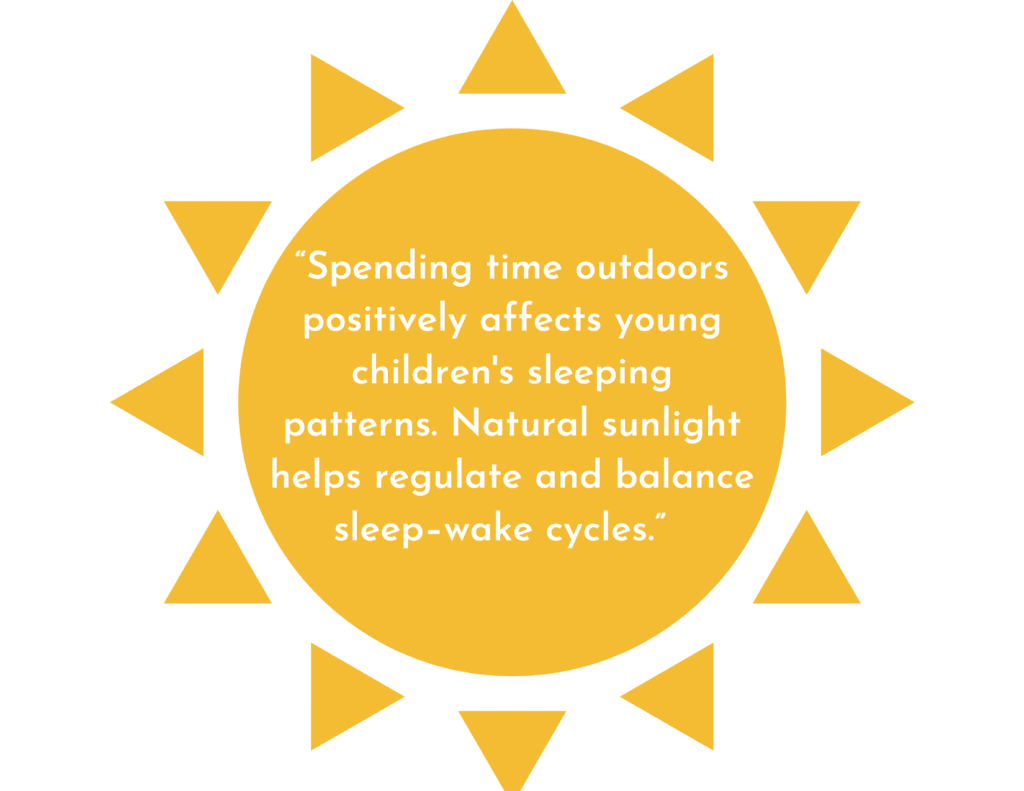Our lives are so busy with chores, errands, and work that it seems like we can’t fit even one more priority into our schedules. Who has time for outdoor play? If you and your children are not spending at least some daily time outdoors, perhaps it is time to reassess as Spring is approaching!
In a recent article published about the research of Dr. Kathy Hirsh-Pasek, a local developmental psychologist from Philadelphia who is a professor at Temple University and a senior fellow at the Brookings Institution, she acknowledged that “Play is disappearing.” Dr. Hirsh-Pasek is so concerned about the impact of the lack of outdoor play on future generations, that she is currently coordinating a project asking pediatricians to “write prescriptions for outdoor play” for all of their young patients to stress its importance to families.
The good news is here at Play & Learn, we understand the value of outdoor play and make it a daily practice to ensure that children spend time outdoors unless the weather is not cooperating. All of our centers have playgrounds that encourage active play and give children the opportunity to benefit from time outdoors. Besides the fact that research has linked outdoor play to better sleep in children (which is good for us as families too!), there are many benefits that should motivate us to get outdoor and play while our children’s brains are experiencing their short windows of big development!
Here are a few benefits noted by Harvard Health:
- Sunshine: Yes, sun exposure — especially sunburns — can increase the risk of skin cancer, but it turns out that our bodies need sun. We need sun exposure to make vitamin D, a vitamin that plays a crucial role in many body processes, from bone development to our immune system. Sun exposure also plays a role our immune system in other ways, as well as in healthy sleep — and in our mood. Our bodies work best when they get some sunshine every day.
- Exercise: Children should be active for an hour every day, and getting outside to play is one way to be sure that happens. They can certainly exercise indoors, but sending them outdoors — especially with something like a ball or a bike — encourages active play, which is really the best exercise for children.
- Executive function: These are the skills that help us plan, prioritize, troubleshoot, negotiate and multitask; they are crucial for our success. Creativity falls in here, too, and using our imagination to problem-solve and entertain ourselves. These are skills that must be learned and practiced — and to do this, children need unstructured time. They need time alone and with other children, and to be allowed (perhaps forced) to make up their own games, figure things out, and amuse themselves. Being outside gives them opportunities to practice these important life skills.
- Taking risks: Children need to take some risks. As parents, this makes us anxious; we want our children to be safe. But if we keep them in bubbles and never let them take any risks, they won’t know what they can do — and they may not have the confidence and bravery to face life’s inevitable risks. Yes, you can break an arm from climbing a tree — and yes, you can be humiliated when you try to make a friend and get rejected. But that doesn’t mean you shouldn’t try; the lessons we learn from failure are just as important as those we learn from success.
- Socialization: Children need to learn how to work together. They need to learn to make friends, how to share and cooperate, how to treat other people. If they only interact in very structured settings, such as school or sports teams, they won’t — they can’t — learn everything they need to know.
- Appreciation of nature: So much of our world is changing, and not for the better. If a child grows up never walking in the woods, digging in soil, seeing animals in their habitat, climbing a mountain, playing in a stream, or staring at the endless horizon of an ocean, they may never really understand what there is to be lost. The future of our planet depends on our children; they need to learn to appreciate it.

And if the list above doesn’t do it for you, just remember that “Spending time outdoors positively affects young children’s sleeping patterns. Natural sunlight helps regulate and balance sleep–wake cycles.” When children have adequate time outdoors to feel the sun, run freely, release energy and notice the world around them, everyone gets a better night’s sleep!
For more resources regarding this topic, explore below!
6 reasons children need to play outside – Harvard Health
Going Outside Improves Children’s Health | ECLKC (hhs.gov)
.








